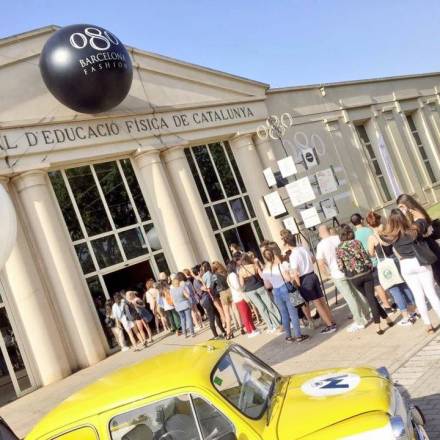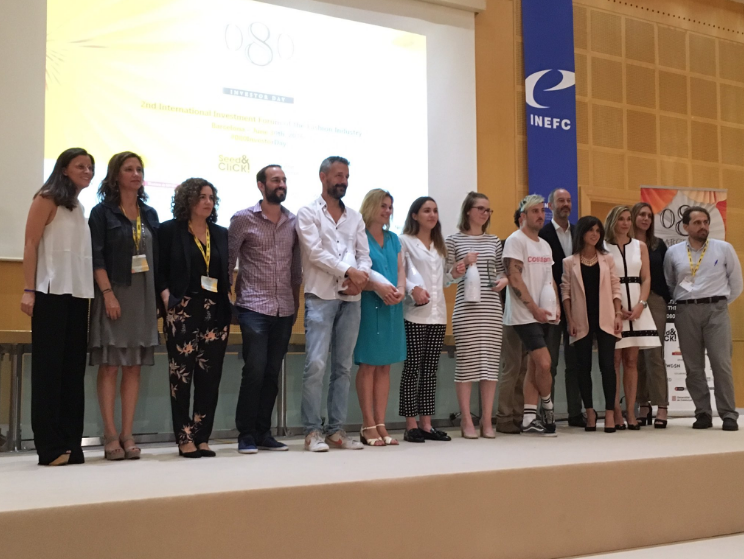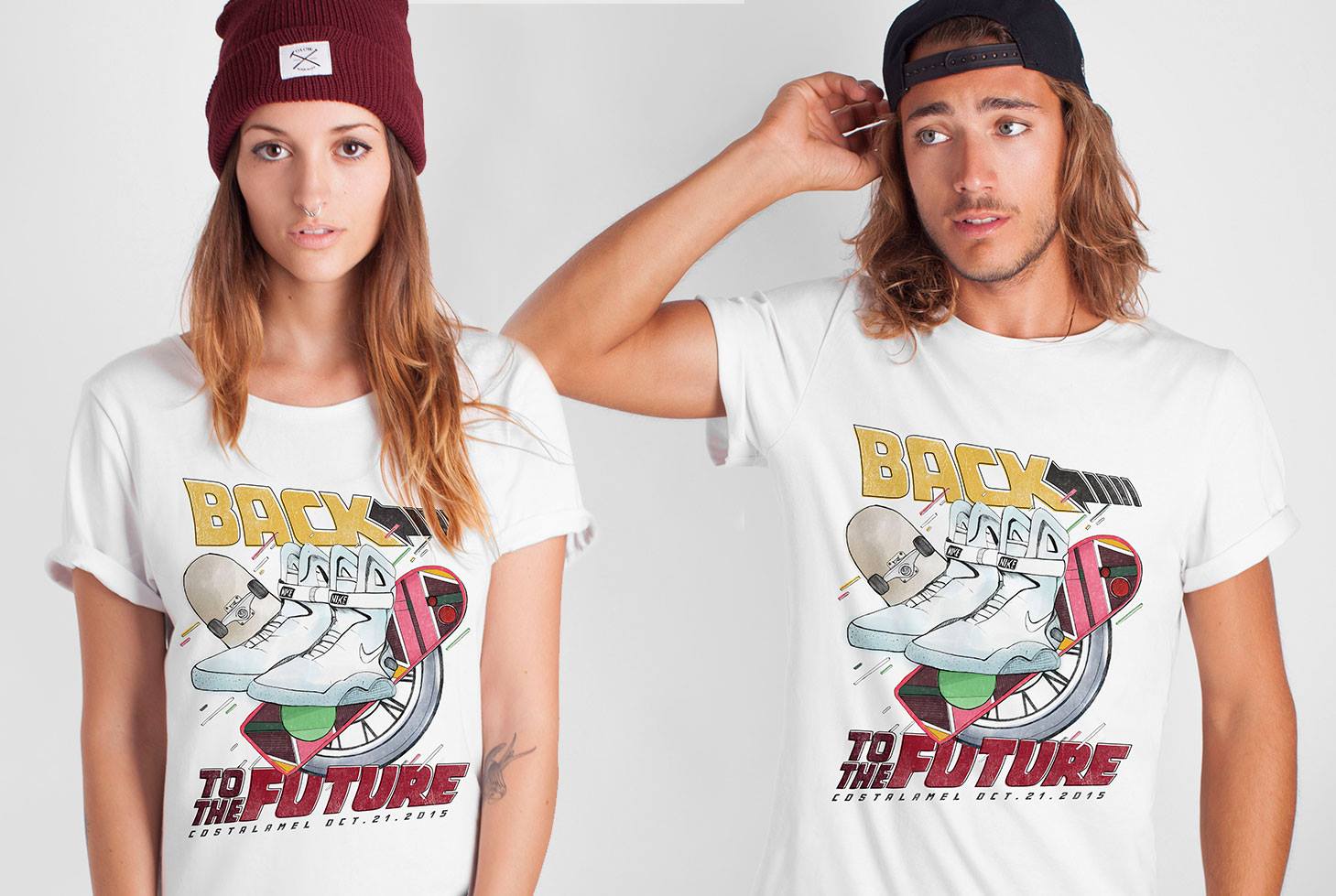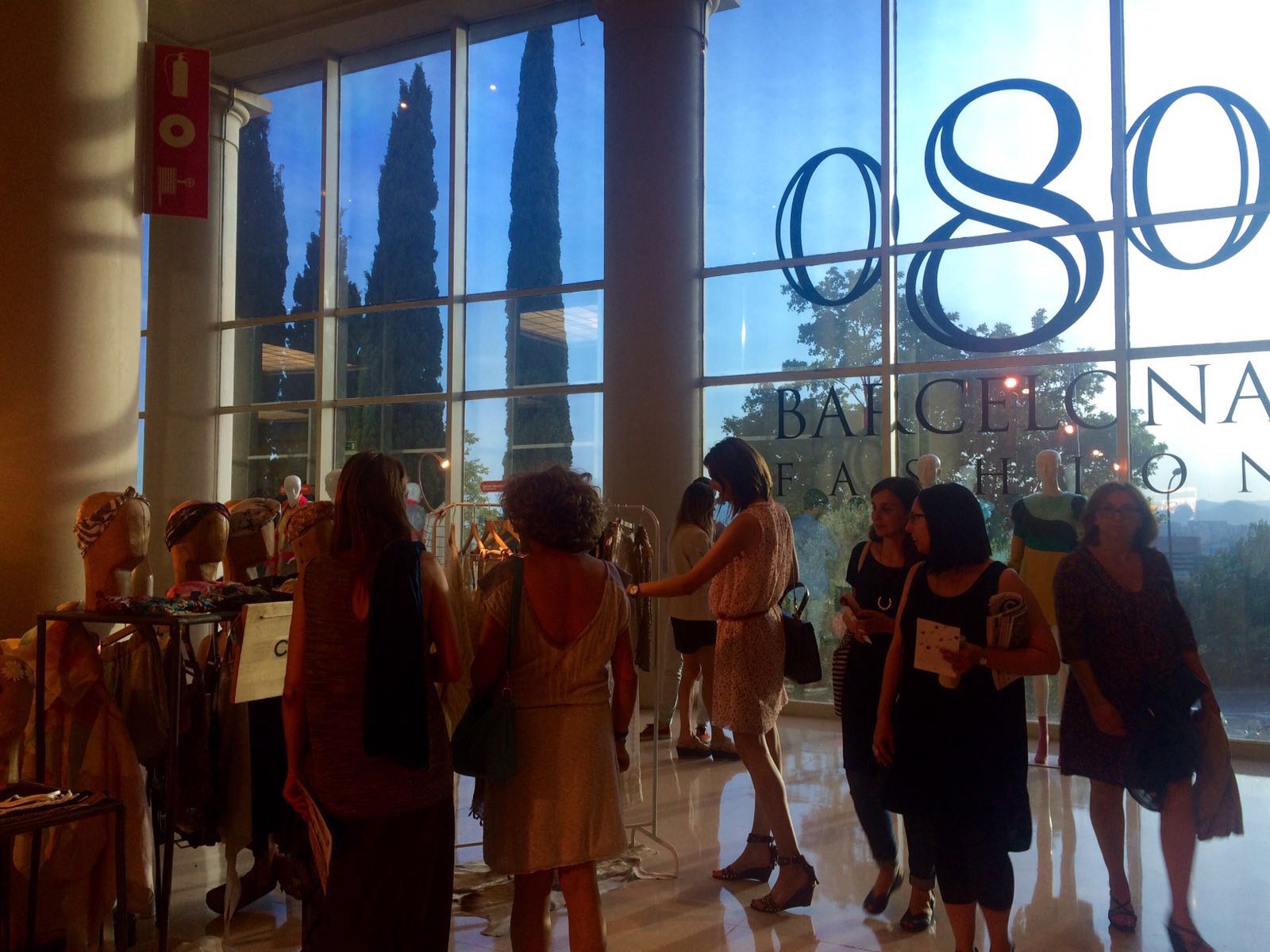
01
de Juliol
de
2016
Act.
06
de Juliol
de
2016
"What there is around the fashion shows is the most important thing about 080 Barcelona". This is according to Enric Jové, CEO of McCann Worldgroup Barcelona and jury member in the 080 Barcelona Fashion Investor Day that took place on Thursday morning. The fashion event and the Seed&Click network of investors for the second year running organised a competition of startups in the fashion sector with a prize worth 100,000 euros. The contest was won by the English firms Smartzer and Bookalook.
"For a brand to be on the runway means visibility and media coverage; but for Barcelona and Catalonia's business ecosystem the most important thing is what's happening around about," insists Jové. As he sees it, "you only generate the nucleus of an industry if beyond the fashion shows there is a business ecosystem to support them. Making sure it does not just become another fashion show is basic."
In the end, adds Enric Jové, "having a fashion show does not mean being successful. There are a lot of them and we compete in the country that has the most important ones. From the beginning, we have lost the battle for visibility." Therefore, he is in favour of bringing in new elements, such as the startups contest. "Support has to be provided around 080, so that the large companies in the sector with a base here believe in it. So that we can come up with a fashion show model that is different from the others, which have more prestige, money or history," he says.
It is a similar story from Xavier Martí, founder member of Sheekr, one of the projects taking part in the Investor Day. "For the world of innovation, the policies connecting players are very important," he says. "For 080 to be connected to the business network, whether it be startups or another type around it, is fundamental," he insists.
Also taking part in the event was Costalamel, the brand founded by Ernest Costafreda, who is positive about opportunities such as these in an environment in which "the fashion shows are not organised to promote the small brands, but rather the major brands." Despite stressing the cordial relationship that has always existed between the brand and 080, Costafreda is slightly critical. "I am no great believer in the paraphernalia of fashion weeks that end up promoting the major brands, while the people doing independent things are left out of it a little."
Digital opportunities
Costalamel makes "streetwear" and has been operating for two and a half years. It is currently doing a round of investment that will go towards online marketing. "It is the area we move in," the founder and creative director tells VIA Empresa. "We have presented the project to a number of investment platforms and business schools; and this also seemed like a good platform to promote ourselves and so that more investors can learn of the project," he says.
As for Sheekr, Xavier Martí says that "we are a Big Data company." The main product is an app and hardware that allows users to improve the experience of what they already do: taking photographs of themselves inside the changing rooms to send to their contacts so that they can give them their opinion on whether to buy or not.
"The main aim is to get investment. For us to show that the market wants what we are doing," says Martí. The head of Sheekr points out that "a competition like this is in the end the opinion of a part of the market." With the intention of soon launching new functions that do not depend so much on the hardware installed in the shop, as until now, Martí points out that "our visibility in the short-term has to be towards the investors."
As for the jury, Enric Jové points out that they basically look at the business model. "When you evaluate any startup contest, you have to be able to see if the idea is genuinely disruptive and breaks into a market by introducing new business models and changing key aspects of the value chain," he says. "When you see that, then it has real possibilities of being successful."
The importance of digital
Jové is clear that "in the digitalisation of companies, the fashion market is what has allowed for more successful companies from the outset." He provides the example of Privalia, which "for all that we see it as e-commerce, it basically sells fashion."
Jové insists that this sector "is a market grateful for the introduction of digital startups." And that is because "the consumer has broken the barrier of fear that other markets, such as food, have not been able to do." Although logic might make one think that it is easier to sell a box of biscuits than a t-shirt online, Jové insists that "it has been shown that the world of fashion has evolved more quickly and through platforms of co-creation, design and cooperation there is still a long way to go."
Sheekr is one of the companies that wants to make the most of the impact of digital on fashion, facilitating the typical consultation with friends through photos in the changing room. "We provide more functions, to the extent that they can purchase using the photo later once at home," says Martí. So, it is not a virtual changing room, but rather the camera in the shop outside the changing room, activated by the user from the app, allows for sharing the different looks with friends and buying later using the image that was most popular.
"It is the result of the conviction that fashion is image and buying clothes has a social nature. When you buy clothing you are thinking about other people and it has a social connotation in the brain," says Xavier Martí. That is why Sheekr is attempting to find a solution through a single function linked directly to the purchase.
Costalamel also exists in the digital world. Its founder argues that digitalisation "has lowered the barrier to entry. Some 15 years ago if you came up with a brand, how would people learn about it? Now you can have Instagram and Facebook, taking quality photos and videos to get there." However, Costafreda warns that "if all you devote yourself to is creating content for social networks and you do not attempt to connect with the consumer, ending up with only the superficial part of what fashion is, such a watch or some sunglasses, then I do not think it has a lot of future."
Whatever the case, "in five years we will see which brands have survived all the hype there is now, and who will be left standing. I think there will only be a few," he says.
"For a brand to be on the runway means visibility and media coverage; but for Barcelona and Catalonia's business ecosystem the most important thing is what's happening around about," insists Jové. As he sees it, "you only generate the nucleus of an industry if beyond the fashion shows there is a business ecosystem to support them. Making sure it does not just become another fashion show is basic."
 |
| As in all contests, there is a prize-giving ceremony . Sheekr. |
In the end, adds Enric Jové, "having a fashion show does not mean being successful. There are a lot of them and we compete in the country that has the most important ones. From the beginning, we have lost the battle for visibility." Therefore, he is in favour of bringing in new elements, such as the startups contest. "Support has to be provided around 080, so that the large companies in the sector with a base here believe in it. So that we can come up with a fashion show model that is different from the others, which have more prestige, money or history," he says.
It is a similar story from Xavier Martí, founder member of Sheekr, one of the projects taking part in the Investor Day. "For the world of innovation, the policies connecting players are very important," he says. "For 080 to be connected to the business network, whether it be startups or another type around it, is fundamental," he insists.
Our elevator pitch #080InvestorDaypic.twitter.com/iLs4UN20T3
— Sheekr ™ (@sheekr) 30 de juny de 2016
Also taking part in the event was Costalamel, the brand founded by Ernest Costafreda, who is positive about opportunities such as these in an environment in which "the fashion shows are not organised to promote the small brands, but rather the major brands." Despite stressing the cordial relationship that has always existed between the brand and 080, Costafreda is slightly critical. "I am no great believer in the paraphernalia of fashion weeks that end up promoting the major brands, while the people doing independent things are left out of it a little."
 |
| Costalamel makes urban fashion inspired "from Barcelona to the world" . Ceded |
Digital opportunities
Costalamel makes "streetwear" and has been operating for two and a half years. It is currently doing a round of investment that will go towards online marketing. "It is the area we move in," the founder and creative director tells VIA Empresa. "We have presented the project to a number of investment platforms and business schools; and this also seemed like a good platform to promote ourselves and so that more investors can learn of the project," he says.
As for Sheekr, Xavier Martí says that "we are a Big Data company." The main product is an app and hardware that allows users to improve the experience of what they already do: taking photographs of themselves inside the changing rooms to send to their contacts so that they can give them their opinion on whether to buy or not.
"The main aim is to get investment. For us to show that the market wants what we are doing," says Martí. The head of Sheekr points out that "a competition like this is in the end the opinion of a part of the market." With the intention of soon launching new functions that do not depend so much on the hardware installed in the shop, as until now, Martí points out that "our visibility in the short-term has to be towards the investors."
As for the jury, Enric Jové points out that they basically look at the business model. "When you evaluate any startup contest, you have to be able to see if the idea is genuinely disruptive and breaks into a market by introducing new business models and changing key aspects of the value chain," he says. "When you see that, then it has real possibilities of being successful."
The importance of digital
Jové is clear that "in the digitalisation of companies, the fashion market is what has allowed for more successful companies from the outset." He provides the example of Privalia, which "for all that we see it as e-commerce, it basically sells fashion."
Jové insists that this sector "is a market grateful for the introduction of digital startups." And that is because "the consumer has broken the barrier of fear that other markets, such as food, have not been able to do." Although logic might make one think that it is easier to sell a box of biscuits than a t-shirt online, Jové insists that "it has been shown that the world of fashion has evolved more quickly and through platforms of co-creation, design and cooperation there is still a long way to go."
Sheekr is one of the companies that wants to make the most of the impact of digital on fashion, facilitating the typical consultation with friends through photos in the changing room. "We provide more functions, to the extent that they can purchase using the photo later once at home," says Martí. So, it is not a virtual changing room, but rather the camera in the shop outside the changing room, activated by the user from the app, allows for sharing the different looks with friends and buying later using the image that was most popular.
 |
| 080 does not only depend on fashion shows. Laia Corbella |
"It is the result of the conviction that fashion is image and buying clothes has a social nature. When you buy clothing you are thinking about other people and it has a social connotation in the brain," says Xavier Martí. That is why Sheekr is attempting to find a solution through a single function linked directly to the purchase.
Costalamel also exists in the digital world. Its founder argues that digitalisation "has lowered the barrier to entry. Some 15 years ago if you came up with a brand, how would people learn about it? Now you can have Instagram and Facebook, taking quality photos and videos to get there." However, Costafreda warns that "if all you devote yourself to is creating content for social networks and you do not attempt to connect with the consumer, ending up with only the superficial part of what fashion is, such a watch or some sunglasses, then I do not think it has a lot of future."
Whatever the case, "in five years we will see which brands have survived all the hype there is now, and who will be left standing. I think there will only be a few," he says.